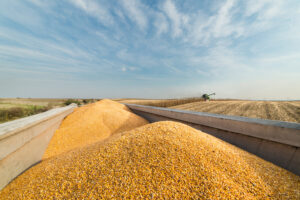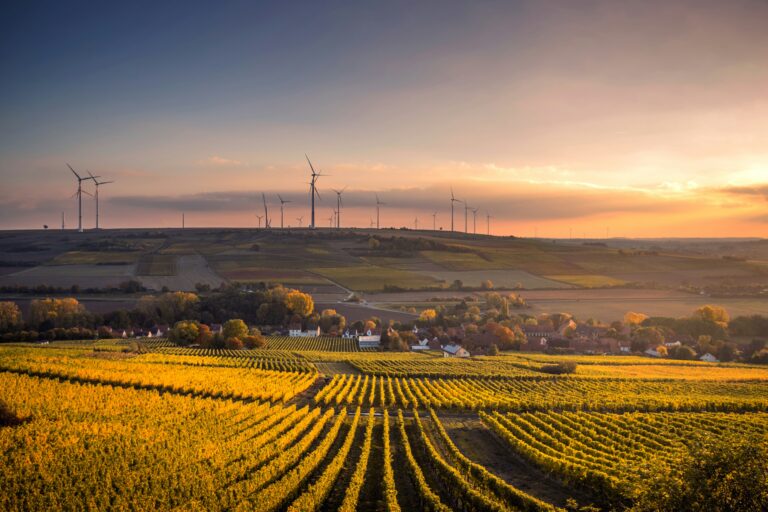
Stakeholders
Farming impacts all stakeholders involved in the value chain
The agricultural supply chain reaches far beyond the direct relationship between farmer and consumer. Every stakeholder whether it’s banks, transportation companies, regulatory bodies, input suppliers, or retailers plays a crucial role in driving sustainability.
Emissions and environmental impact are not isolated to the farm; they ripple through the entire supply chain. By focusing on sustainable farming, we create a positive impact that extends to every link in the chain. A commitment to sustainability at the farm level improves not only the carbon footprint of agricultural goods but also enhances the environmental credentials of everyone involved, from financial institutions investing in agriculture to the retailers offering these products to end consumers. Sustainable practices in farming are the foundation for a greener, more efficient supply chain, and a shared responsibility that benefits all stakeholders in the industry.
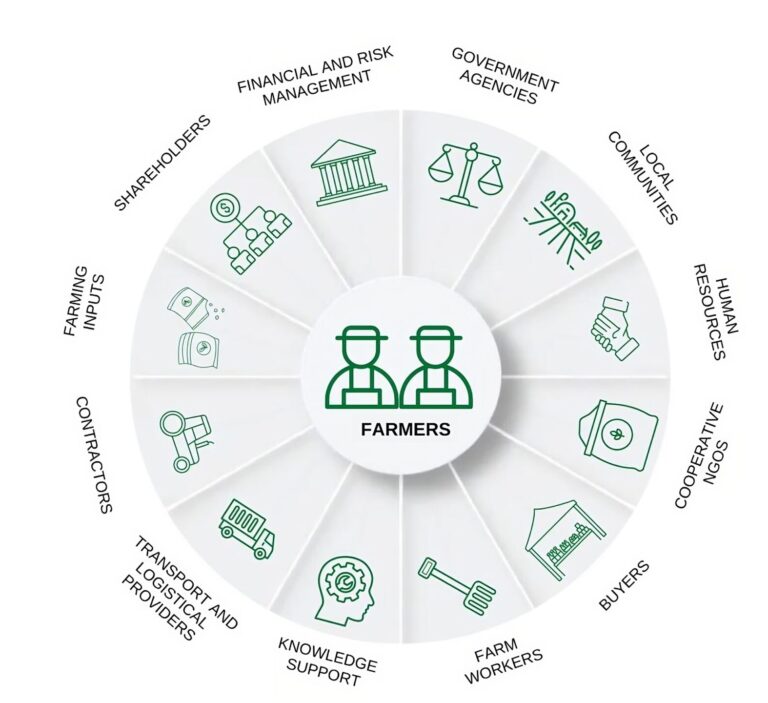

Banks &
financial partners
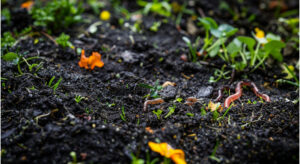
Fertiliser
manuafacturers
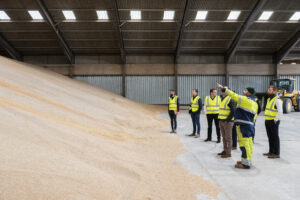
Storage
providers
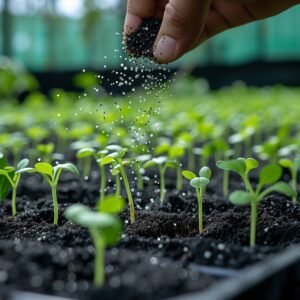
Other
input providers

Employees &
communities
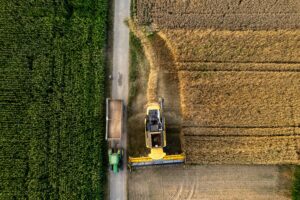
Agricultural
equipment
Aligning incentives in the supply chain
With the increasing number of sustainability commitments in the food and beverage supply chain, there has been a surge in product development and innovation aimed at achieving Net Zero. This includes green fertilizers, direct drill machinery, and financial instruments like green loans, all targeted at farmers.
Yet, this abundance of options can often lead to confusion, as farmers are overwhelmed by offers from multiple stakeholders, leaving them unsure of the best path forward. To address this, we partner with different stakeholders to serve as a one-stop shop, streamlining access to payments and resources for sustainable practices.
Farmers who invest in sustainable assets, such as direct drill machinery to lower emissions, often end up shouldering the initial costs of transitioning towards Net Zero. Without adequate compensation or support, they may feel discouraged, viewing the financial burden as an unfair imbalance.
That’s why Cefetra, in partnership with Soil Capital, has developed a comprehensive framework that aligns incentives across the supply chain. This solution provides farmers with direct payments for adopting regenerative practices, ensuring that the financial rewards match their environmental contributions.
Through this framework, farmers benefit from more resilient and productive soils, stakeholders gain the ability to market more sustainable products, and companies can achieve meaningful reductions in their Scope 3 emissions.
Reduce your Scope 3 footprint with Cefetra
If you are a fertiliser producer, the emissions from the application of your products by farmers are classified under “Use of Sold Products” in your Scope 3 accounting. For banks and insurance companies, on-farm emissions fall under “Investments,” representing the emissions tied to financed or insured agricultural activities. Similarly, agricultural equipment manufacturers need to account for emissions under “Use of Sold Products” as their machinery operates in the field.
For any company involved in the agricultural supply chain, a substantial portion of emissions will inevitably be linked to on-farm activities. Partnering with Cefetra Ecosystem Services means collaborating directly with farmers who are committed to reducing their environmental footprint. By working together, we bridge the gap between on-farm sustainability practices and Scope 3 reduction goals, enabling you to make a tangible impact on the environmental performance of your supply chain.
Driving innovation through supply chain collaboration
Collaboration is necessary to driving innovation and delivering tangible results across the agricultural value chain. Every stakeholder, from farmers to input suppliers to end consumers, are impacted by the practices at the farm level. It is only through collective effort that we can achieve meaningful emissions reductions and build resilient supply chains.
We encourage industry leaders and stakeholders to engage with us in pioneering projects and strategic partnerships that leverage our shared expertise and resources.
Our commitment to sustainability
Sustainability is at the heart of everything we do at Cefetra. Our initiatives are designed to reduce our carbon footprint, promote biodiversity, and ensure fair and ethical trade practices across our supply chain. We are committed to working with our stakeholders to develop innovative solutions that address the current pressing environmental challenges.
Cefetra Ecosystem Services plays a vital role in supporting farmers in their transition to regenerative agriculture. From water conservation to soil health, these services are essential for maintaining the balance of our environment.
Beyond our activities as Cefetra Ecosystem Services, Cefetra is engaged in several sustainability initiatives in the agricultural supply chain.
Cefetra started auditing and certifying farms in South America in 2008 and we were able to offer CRS certification along with our physical soya to our customer base from 2009. Crucially, since its inception in 2008, CRS certified farms must adhere to zero-deforestation (with a cut-off date of May 2009), making us pioneers in the marketplace for this criteria. If we look at the current EU Regulation on Deforestation-free Products the cut-off date is December 2020, meaning that Cefetra asks for an extra 11 years of deforestation free land.
Similarly, In January 2022 Cefetra Ltd received the results of our first sustainability assessment from EcoVadis which measured our environmental, social, and ethical performance. We initially received an EcoVadis Silver Medal, placing us in the top 25% of companies assessed. In subsequent years we are proud to have improved upon that result, achieving consecutive EcoVadis Gold medals, placing us in the top 5% of companies assessed.
As an independent supply chain manager, people are our assets. That is why we undertake the Sedex Members Ethical Trade Audit (SMETA), Sedex’s social auditing methodology. This enables us to gain a clearer understanding of the ethics within our sites and supply chains
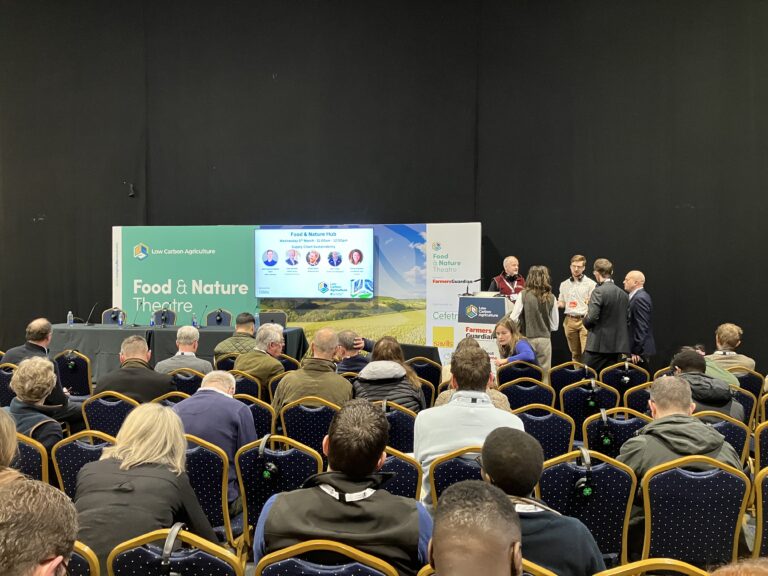
Low Carbon Agriculture Show 2025 Recap

Sustainable Foods 2025 Recap

Get in touch
Contact our farm specialists by mail at: ecosystemservices@cefetra.co.uk
How can we help you? Feel free to get in contact with us!
Send an email to ecosystemservices@cefetra.co.uk or fill in the contact form.
